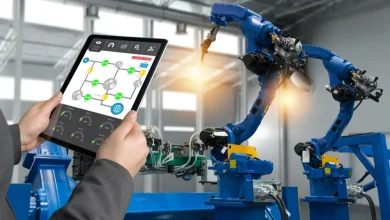The Role of AI in Combating Climate Change

Climate change is one of the most pressing issues facing our planet today. With rising temperatures, melting glaciers, and extreme weather events, our planet is undergoing significant changes that will have a profound impact on our future. However, there is hope. Artificial intelligence (AI) is emerging as a powerful tool in the fight against climate change. In this article, we will explore the role of AI in combating climate change.
What is AI?
AI is a technology that enables machines to learn and perform tasks that would typically require human intelligence. AI systems can analyze data, recognize patterns, and make predictions based on that data. These capabilities make AI an invaluable tool in combating climate change.
How AI is helping to combat climate change
Here are some of the ways in which AI is being used to combat climate change:
- Climate modeling: AI is being used to develop more accurate climate models, which can help us understand how the climate is changing and predict future changes. This information can be used to develop better climate policies and strategies.
- Energy efficiency: AI is being used to optimize energy use in buildings and other structures. For example, AI systems can adjust lighting and temperature settings based on occupancy patterns, reducing energy waste.
- Renewable energy: AI is being used to improve the efficiency of renewable energy systems. For example, AI systems can optimize the placement of wind turbines and solar panels to maximize energy production.
- Carbon capture: AI is being used to develop more efficient carbon capture and storage technologies. These technologies can help to reduce greenhouse gas emissions from power plants and other industrial processes.
The benefits of AI in combating climate change
Here are some of the benefits of using AI to combat climate change:
- Increased efficiency: AI systems can optimize energy use and reduce waste, leading to increased efficiency and cost savings.
- Improved accuracy: AI systems can analyze large amounts of data to develop more accurate climate models and predictions.
- Reduced emissions: AI systems can help to reduce greenhouse gas emissions from energy use and industrial processes.
- Greater resilience: By developing more accurate climate models, we can better prepare for and adapt to the impacts of climate change.
AI is an emerging technology with tremendous potential in the fight against climate change. By improving the efficiency of energy use, increasing the use of renewable energy, and developing more efficient carbon capture technologies, AI can help to reduce greenhouse gas emissions and mitigate the impacts of climate change. As we continue to develop and refine AI technologies, we can work towards a more sustainable future for our planet.




